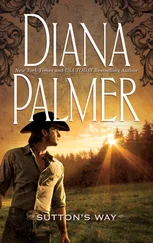Brother is a rock star.
“I love it. It’s great!” she said, still chewing.
He smiled.
“Your first hit!”
“A chart-topper,” Nik said, with a sarcasm about his chances at success that would soon be replaced with something more, well, unusual.
The moment stood out to Denise for other reasons as well. She realized then that he was good at this, songwriting, in a way he never was at guitar playing. He had figured this out, while she was still nowhere.
Denise really should call someone.
She sat down at Nik’s worktable, a huge unfinished piece of wood set on two sawhorses and pushed against the wall. His razor-point black pens of various widths and sharpened General’s Cedar Pointe pencils were neatly lined up. Scissors, X-Acto blades, erasers, homemade wheat paste, double-sided photo tape, rubber cement, and Tombow Mono Adhesive were all within reach. A ream of acid-free pure white paper, and off to the side the white Royal manual typewriter with the lazy a that he used to type his formal entries in the Chronicles. Evidence of the Chronicles was everywhere around her. The earlier volumes were shelved in chronological order starting in the garage downstairs (1970s–2003). But he kept the volumes of the current year in a neat row on a shelf above his desk. On the walls near the desk she could see the framed album covers, posters, master images for label art, photos, and pasted-up fake news clippings. And under her hands and all in front of her was Nik’s clear, inviting wood desk. All set up for work.
His archive oppressed her. She needed a chronicle of her own, with her own opposite silly penchant for reality and memory and ordinary facts. Because that was all she could think to do with what had transpired. She must conclude it liberated her in some deep way, and maybe it even did.
My disclaimer:
You can go back forever to grab a context for a brother and sister. And even then the backward glance is distorted by the lens of the present. The further back, the greater the distortion. It is not just that emotions distort memory. It is that memory distorts memory, if that makes any kind of sense. I must simply try to recall the events that led to our crisis (let’s call it that for now). Because there were contributing factors, things that speak to states of mind. There were signs and indications and decisions with consequences well before the events of the last few days. Can one make causal connections without manufacturing narratives? Or is all memory simply the application of narrative to past events, and is it only human and coherent to do that work? To begin, I must be quite clear with myself. I must do my best to stick to the fairly recent past, without the nostalgic digressions, to stick to exactly what happened this year, 2004, what actually happened to us, and, well, to me.
DECEMBER 31, 2003– JANUARY 1, 2004
I arrived at Nik’s bar shortly before midnight. I call it Nik’s bar, but it isn’t. It is Dave’s Bar. This marginal establishment — broken stools, gum-stuck linoleum floor tiles, dirty bathrooms, expensive speaker system, heavy pours — has been a functioning bar for three decades, with Nik working there, on and off, for most of those years. While the New Year announced itself in beer and blurry kisses, I sat, on my own, on the other side of the bar from Nik. (It is easy to recall the start of the year because of the holiday. A holiday helps to place you. Memory technique #1, use Dates as Placeholders in your brain. All calendars are simply ancient arbitrary mnemonic tools for the culture. We will take Pope Gregory’s version and move on.) Naturally 2004 was a leap year — already a bad sign, as far as I was concerned, and I was deeply concerned. New Year’s Eve is a rough holiday even in the best of years. 2004 whiffed bad from the get-go.
At midnight Nik would put on the Rolling Stones’ “Dead Flowers.” The song is easy to recall because he played it every year at midnight. Which also makes the actual night difficult to recall, as all the moments hearing that song run into one another, indistinct, uniformly soundtracked. He poured some drinks. He keyed up the song. He poured himself a drink. He let the bar crowd start counting down the seconds until midnight. He poured more drinks. It is just a sloggy old bar, so mostly it was beer and shots and not a lot of complicated cocktails, but this year I saw he struggled to get all the rounds done in time so he could attend to the music and the countdown. He did this and I watched him, sort of hoping to talk for a moment. Although I hadn’t had much to drink, I was feeling a little sentimental about my big brother. I had listened to his latest CD, a seasonal release called Caroles and Candles by his band the Pearl Poets. The Pearl Poets were a side project of Nik’s in which he used the one-name pseudonym Mason. They were a moody folk trio — Mason, Mark, and Chris — but actually all of the parts were voiced by Nik. They all lived together at Tottenham Cottage in North London. They sang pristine Celtic-style layered harmonies, Nik managing all of this with his old Tascam four-track. The first Pearl Poets album, Sylvan Shine, was released in 1980. It was a concept electric folk record. All the songs on that album had sky-related titles: “Aurora Borealis,” “Corona,” “Fata Morgana,” “Airglow,” “Brocken Bow,” etc. The second album, Suites for the Sweet, took ten years to produce. It featured original and traditional folk songs with electric arrangements. As I recall from the liner notes, Nik used lots of fiddle and unusual time signatures. I didn’t think it was nearly as good as the first one. This current seasonal release of obscure traditional carols and a few original ballads was the third Pearl Poets album, and although the concept was a bit stretched at this point, it had been so many years since the last one it seemed fresh. A reunion Christmas album to cash in, I guess, was how he would describe it in the Chronicles. I loved it, and I was eager to report the details of my admiration. At least a superficial report, a first pass at it. But he was busy, and then we were right up against midnight. He drank his shot, “Dead Flowers” came on, the whole bar started singing along. He gave me a sloppy kiss on the cheek, his lips wet with bourbon, and I waited until he turned back to the bar before I wiped the wetness off my cheek with a bar napkin, quickly, and then returned the napkin to the bartop, where it found a wet spot and began to darken.
I suppose as I sat there in the early-morning hours of 2004 I might have been contemplating the previous year. I probably couldn’t recall much — now I can’t even recall if I recalled much. But my memory concerns hadn’t reached their peak yet. My semi-obsessive interest in how my own memory functions would top out about a month later. All of that had begun with my mother’s memory issues, which had really kicked in in the last few months of 2003.
Maybe, though, as I sat at the bar, I thought of Ada, and maybe I tried to picture her in New York, at a party. Which would have been nice. But sooner or later I have little doubt that my thoughts turned to my mother’s mind. It is the kind of thing that occurs to you in the marginal moments of your life: during a commercial, a shower, in the fraught minutes before you fall asleep. Or when you sit at a bar, waiting for an arbitrary holiday marker to pass. You suddenly remember how badly she was failing and it deflates you, just takes the air right out of you. So I was probably thinking of her mind and memory, but I can’t be sure, because I cannot recall anything except the song and the kiss and the cocktail napkin on the bar.
Читать дальше












